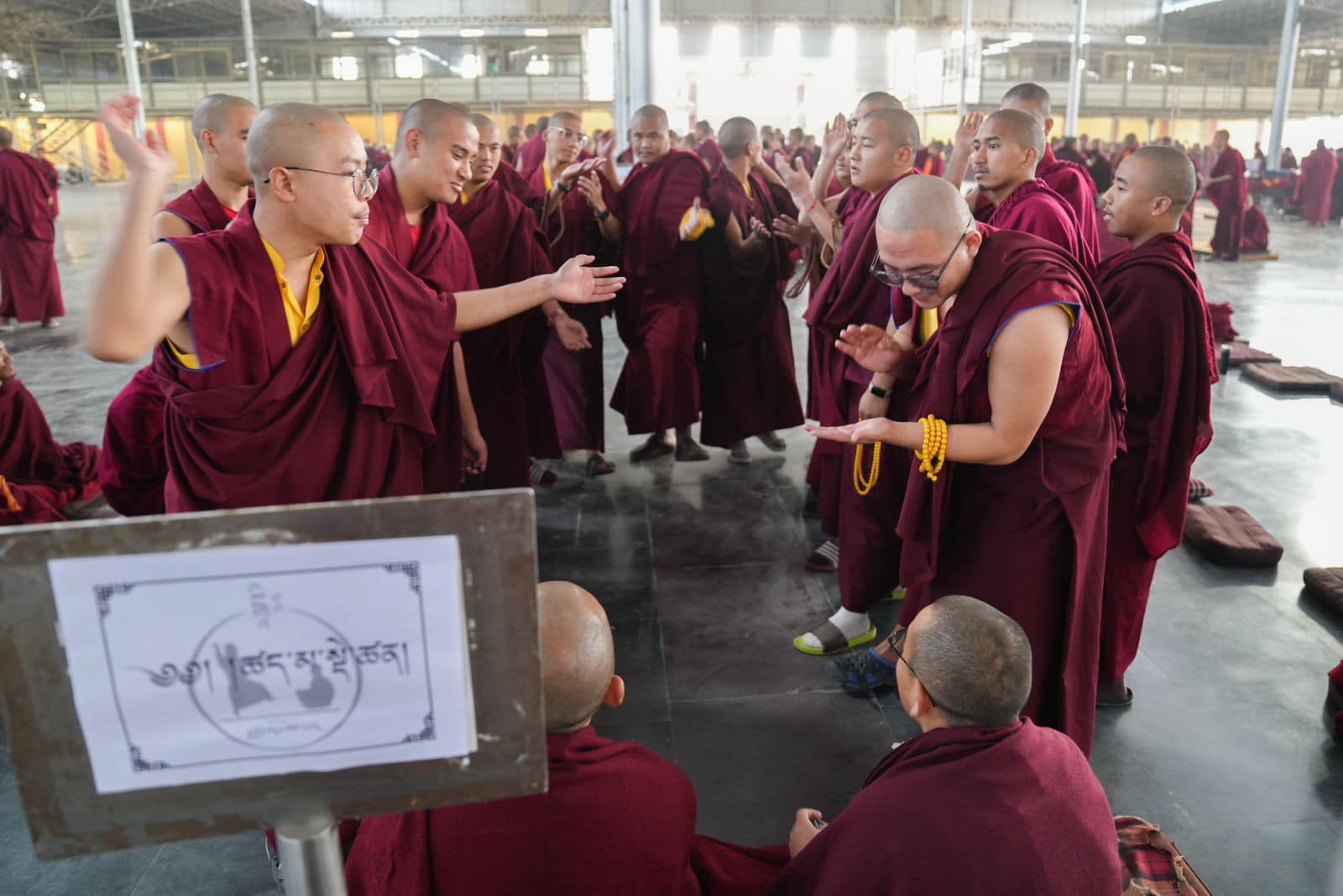Kagyu Monlam Pavilion,
14 December 2023
༄༅། །བཀའ་བརྒྱུད་དགུན་ཆོས་ཆེན་མོ་ཐེངས་ ༢༤ པའི་ཉིན་གཉིས་པ།
ཕར་ཕྱིན་དང་ཚད་མའི་སྡེ་ཚན་ཁག་གི་རྩོད་པའི་འགྲན་སྡུར་དབུ་འཛུགས་ཡོད།
འགྲན་རྩོད་པ་རྣམས་དགོན་སྡེ་ཁག་མཉམ་འདྲེས་དང་གཟུ་དཔང་བ་རྣམས་སྔར་བཞིན་གདན་ས་ཁག་གི་མཁན་སློབ་རྣམས་ཡིན།
དགོང་མོ་རྩོད་ཟླ་དང་བཅས་ཉིན་འདིའི་མཛད་རིམ་ལེགས་པར་གྲུབ།
On the second day of the 24th annual Kagyu Gunchoe, the inter-section debating contest began. In previous years, the competition was organised between the monastic shedras, but this practice was overhauled last year and nowadays the contest is between groups compiled of monks on the same level from different shedras.
There are around one thousand three hundred monks here this year, representing twelve monastic institutes: Rumtek Shedra Karma Śrī Nālandā, Palpung Shedra Lungrig Jampel Ling, Rigpe Dorje Tsug Lag Lobnyer Khang, Sönada Rangjung Künkhyab Thorim Lobnyer Khang, Zurmang Shedra Lungtok Norbü Gatshel, Thrangu Shedra Vajra Vidyā, Tergar Shedra Ösel Ling, Karma Lekshe Ling Shedra, Nyide Shedra Lungtok Chökyi Gatshel, Gyendruk Khepe Densa Pel Nālandā, Bokar Shedra Öbar Chime Ling and Benchen Shedra Nangten Thösam Ling.
During the day, the monks practise debate individually and in smaller groups in the Kagyu Monlam Pavilion, supervised by the khenpos. Then, in the evening, there is the grand debate where competing teams debate in front of a panel of judges — khenpos from the shedras selected by the shedras— and the assembly of monks. The day concludes with more individual and small group debates.
The debates focus on topics in the monastic curriculum and reflect the level of the students, from beginners in the shedra through the different stages to those who are soon to graduate. The contestants in today’s grand debate were from Pharchin (Prajnaparamita ) and Tsema (Validity).
In preparation for the debates, the monks study specially prepared textbooks which cover the topic. Apart from debate practice, the day is divided into sessions for private study, memorisation of the texts, and instruction on the texts. It’s a long, packed day: the monks get up at 5.30am and go to bed at 10.30pm.












